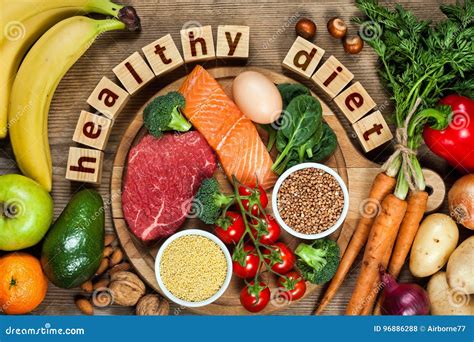How to boost testosterone naturally for peak male performance?

Understanding Testosterone’s Role in Male Performance
Testosterone, the primary male sex hormone, plays a pivotal role far beyond just libido. It influences muscle mass, bone density, fat distribution, red blood cell production, mood, and energy levels. As men age, testosterone levels naturally decline, often leading to symptoms like decreased energy, reduced muscle mass, increased body fat, mood swings, and a lower sex drive. However, age isn’t the only factor; modern lifestyles, stress, and poor dietary choices can also contribute to suboptimal levels. The good news is that several natural strategies can help optimize your body’s testosterone production, paving the way for peak male performance and vitality.
Nutritional Powerhouses: Fueling Testosterone Production
Your diet is a foundational pillar for hormone health. Specific nutrients are crucial for testosterone synthesis.
Prioritize Zinc and Vitamin D
Zinc is a vital mineral that plays a key role in testosterone production. Foods rich in zinc include oysters, red meat, poultry, beans, nuts, and dairy products. Similarly, Vitamin D, often called the “sunshine vitamin,” functions as a steroid hormone in the body and has a strong correlation with testosterone levels. Spend time outdoors and consume foods like fatty fish (salmon, mackerel), fortified milk, and egg yolks.
Embrace Healthy Fats
Cholesterol is a precursor to testosterone, so consuming healthy fats is essential. Include sources like avocados, nuts, seeds, olive oil, and fatty fish in your diet. Saturated and monounsaturated fats are particularly beneficial, but always in moderation and from healthy sources.
Limit Processed Foods, Sugar, and Alcohol
Highly processed foods, excessive sugar intake, and chronic heavy alcohol consumption can negatively impact hormone balance and overall health, potentially suppressing testosterone levels. Focus on whole, unprocessed foods to give your body the best chance at optimal function.

Lifestyle Adjustments: Building a Testosterone-Friendly Environment
Beyond diet, daily habits significantly impact your hormonal profile.
Regular Exercise: The Testosterone Booster
Both strength training and high-intensity interval training (HIIT) have been shown to boost testosterone levels. Lifting weights, especially compound movements like squats, deadlifts, and bench presses, stimulates a significant hormonal response. HIIT, with its short bursts of intense activity followed by brief recovery periods, can also be effective. Aim for a consistent workout routine that challenges your muscles.
Prioritize Quality Sleep
Sleep deprivation is a major disruptor of hormone production. Studies show that even a week of restricted sleep can significantly lower testosterone levels in healthy young men. Aim for 7-9 hours of high-quality sleep per night to allow your body to recover and produce hormones optimally. Create a consistent sleep schedule and a dark, cool, quiet bedroom environment.

Manage Stress Effectively
Chronic stress leads to elevated cortisol levels. Cortisol, often called the “stress hormone,” has an inverse relationship with testosterone; high cortisol can suppress testosterone production. Incorporate stress-reduction techniques into your daily routine, such as meditation, yoga, deep breathing exercises, spending time in nature, or engaging in hobbies you enjoy.
Maintain a Healthy Weight
Obesity, particularly increased abdominal fat, is strongly linked to lower testosterone levels. Fat cells contain an enzyme called aromatase, which converts testosterone into estrogen. Losing excess weight through a combination of diet and exercise can significantly improve testosterone levels and overall hormonal balance.

Consider Smart Supplementation (with caution)
While a whole-food diet and lifestyle changes are paramount, certain supplements can support testosterone production, but they should never replace fundamental healthy habits.
- Vitamin D: If you have limited sun exposure, a Vitamin D supplement can be beneficial, but always get your levels checked first.
- Zinc and Magnesium: Often deficient in modern diets, these minerals are crucial for various bodily functions, including hormone synthesis.
- Ashwagandha: An adaptogenic herb, ashwagandha has been shown in some studies to reduce stress and improve testosterone levels, particularly in stressed or infertile men.
Always consult with a healthcare professional before starting any new supplement regimen, especially if you have underlying health conditions.

Conclusion: A Holistic Approach to Male Vitality
Boosting testosterone naturally for peak male performance is not about a single magic pill or quick fix; it’s about adopting a holistic approach to health. By focusing on nutrient-dense foods, engaging in regular strength training and physical activity, prioritizing restorative sleep, managing stress effectively, and maintaining a healthy weight, you can create an optimal environment for your body to produce testosterone efficiently. Embrace these natural strategies, and remember that consistency is key to unlocking enhanced energy, improved mood, greater muscle mass, and overall vitality. If you suspect low testosterone or experience persistent symptoms, consult a doctor for a proper diagnosis and personalized advice.










